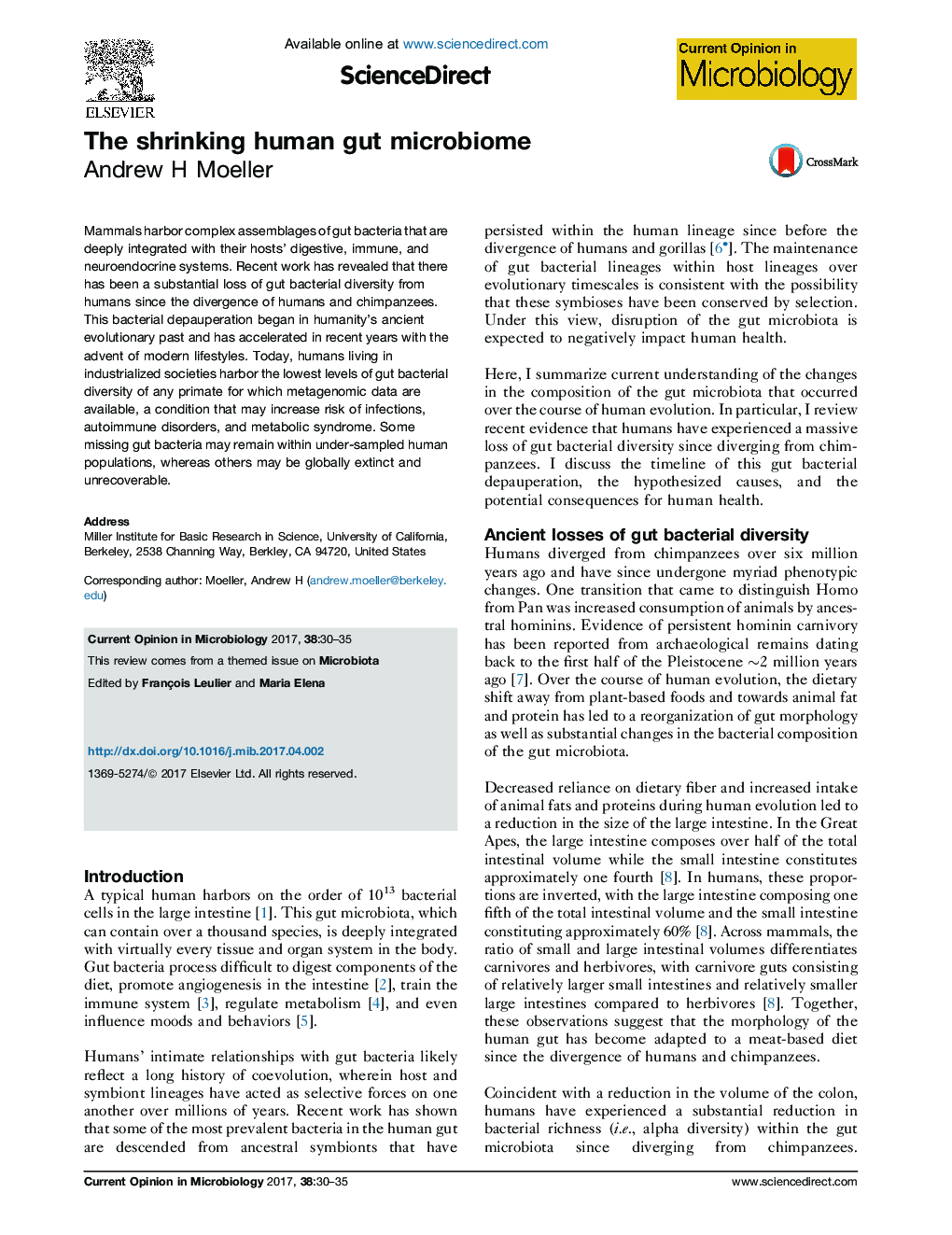| Article ID | Journal | Published Year | Pages | File Type |
|---|---|---|---|---|
| 5671689 | Current Opinion in Microbiology | 2017 | 6 Pages |
â¢Humans harbor the lowest levels of gut bacterial diversity of any hominid.â¢Humans in industrialized nations harbor fewer gut bacterial taxa than any primate.â¢Medical practices and lack of dietary fiber may drive gut bacterial extinctions.â¢Depauperate microbiotas may predispose entire human populations to certain diseases.
Mammals harbor complex assemblages of gut bacteria that are deeply integrated with their hosts' digestive, immune, and neuroendocrine systems. Recent work has revealed that there has been a substantial loss of gut bacterial diversity from humans since the divergence of humans and chimpanzees. This bacterial depauperation began in humanity's ancient evolutionary past and has accelerated in recent years with the advent of modern lifestyles. Today, humans living in industrialized societies harbor the lowest levels of gut bacterial diversity of any primate for which metagenomic data are available, a condition that may increase risk of infections, autoimmune disorders, and metabolic syndrome. Some missing gut bacteria may remain within under-sampled human populations, whereas others may be globally extinct and unrecoverable.
Graphical abstractDownload high-res image (104KB)Download full-size image
